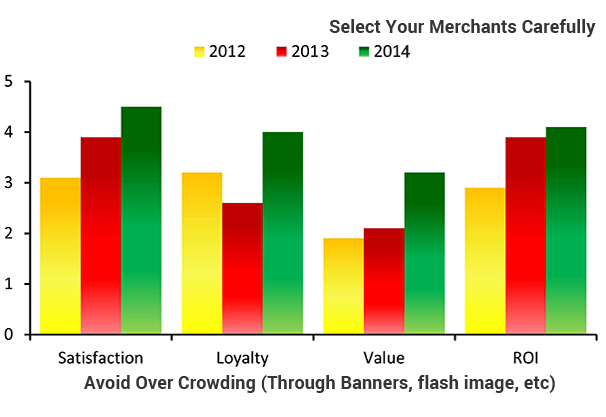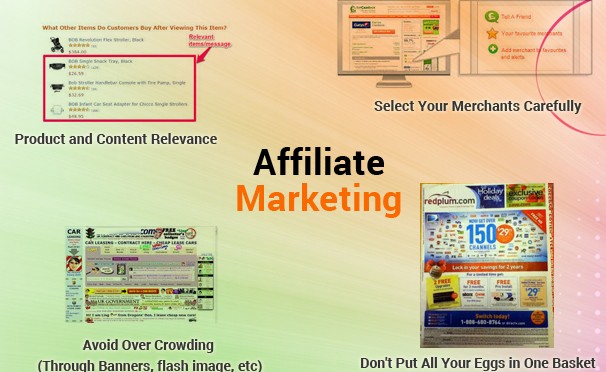Affiliate Marketing – Essential Factors for Affiliate Marketing Success
Recently updated: February 18th, 2025
Affiliate marketing basically refers to an affiliate or partner marketing and promoting the products or services of a merchant for a commission.
It is essentially a referral system based on commission and serves as a cost-effective way for merchants to generate awareness and build visibility for their products and services.
The affiliate marketing industry has grown significantly over the past several years due to the significant advantages it provides both merchants and affiliates. It is today a multi-billion dollar industry employing a range of sophisticated tools and techniques to market products and services. A closer look at the affiliate marketing industry yields
The entry barrier is low making it easy for anyone to become an affiliate marketer, but to succeed as an affiliate marketer is a whole different ballgame. Affiliate marketing is all about patience, perseverance and the willingness to experiment and improvise as the need arises. Since the entry barrier is so low, many people are tempted to start out as affiliate marketers but soon give up due to lack of results. Competition is intense in the industry and to succeed, you need to know the essentials for success in affiliate marketing. Based on my study of the affiliate marketing study, I have defined below some essential factors for affiliate marketing success.
The best way to grow your affiliate marketing business is to attract more visitors to your site, the greater the number of visitors to your site, the greater are the chances of converting a visitor into a purchaser for your merchant partner and earning a referral commission. Using Pay per click search is of course one option to draw traffic to the site, but it involves payouts eating substantially into your commission. It is better to focus on long term traffic growth to your site through emphasis on good quality fresh and relevant content, link building and other organic search methods.
Don’t Put All Your Eggs in One Basket
Many affiliate marketers make the mistake of associating themselves with only one merchant in order to derive maximum benefit but it can turn out to be a risky proposition. It is always better to spread the risk by partnering with at least 3-4 merchants to increase the possibility of conversions as customers have a greater variety to choose from. Working with more than one merchant also reduces your own personal risk of getting your commission paid out in full and in time. On the other hand do not engage with too many merchants to avoid overcrowding your site with offerings and deals.
Select Your Merchants Carefully:
This is perhaps the most important factor determining the success of your affiliate marketing venture. Avoid choosing the merchant solely based on the commission being offered, instead choose a merchant with a good sell through rate or whose products fly off the shelf faster. You also need to do some amount of background research on your target audience and the products and services popular with them and then shortlist merchants whose products and services, such as SEO services, are likely to appeal to your target audiences. Once you have shortlisted the merchants as well as the products and services you would like to market through your site, the next site is to validate the quality of the products and services sold by these merchants as well the reputation of the merchant before making a final shortlist of merchant partners. Selecting the right merchant is very important, hence take your time to ensure that you have done enough research and validation before choosing the merchants to partner with.
Avoid OverCrowding (Through Banners, flash image, etc)
As an affiliate marketer it is very important that you build trust with your visitors to drive conversion as well as to draw repeat customers. Over advertising products and services on offer through big banners and flashy images have the opposite effect of building mistrust and repelling people from the site rather than compelling them to explore further. Avoid over crowding the site with too much advertisement instead focus on giving visitors a good user experience through detailed and informative write ups on products and services offered, including SEO packages.
Product and Content Relevance
A successful affiliate marketing site needs to have products that are in sync with the content on the site and both should be included solely because they are relevant to your target audience. For instance if you are marketing boots through ads and banners on the site but the blogs on your site talks more about clothes and links back to other fashion clothing site, customers are bound to get confused and probably not click on any link. Also make sure the content on your site is both original and updated for relevance to the latest products and services on offering. Do not try and put duplicated content on your site as it is sure to get picked up by search engines and lead to your not showing up in search rankings altogether.
Track the performance of your products on a regular basis

It is very important to stay abreast of market trends and consumer preferences by tracking your product performance on a regular basis. Analyze your product portfolio to gauge which products are converting into sales and which are not, which product ads are getting the maximum clicks as well as what marketing programs are drawing the maximum traffic. By Knowing what works and what does not, you can modify your product portfolio as well as your marketing and advertising offers to yield the maximum benefit.
Focus on revenue generation
Lastly and most importantly, since revenue is what drives all affiliate marketing efforts, it is important to know which factors play the biggest role in determining revenue. Revenue can broadly be defined as commission earned from sale of merchant products, until a visitor acts to purchase or subscribe to a merchants product through your website, revenue is not paid. There are basically 4 process steps or variables in the entire process of earning revenue, namely visitors clicking on a site and converting into customers leads to commission for the affiliate marketer. In other words the variables include
Visitors x Click Rate x Conversion Rate x Commission = Revenue

Click rate basically refers to the number of visitors out of the total who choose to click on the affiliate links displayed on your site and this is where maximum marketing effort is put in to motivate visitors to click on the link to know more about the merchant’s product or service. The higher the click rate, the greater is the possibility of a purchase and the potential of earning more revenue.
While click rate is easier to achieve and measure, it is actually the conversion rate that is the ratio of referrals who actually convert into customers by performing the final act of purchase. Many affiliate marketers act under the assumption that conversion is actually not in their hands as once the visitor has clicked on the merchant link, there is nothing further that they can do. While this may be true, you can mitigate the risk of non-conversion and increase the possibility of conversions by choosing to work with products and merchants that are credible and popular.
Also read How to Convert Website Traffic into Customers
Ultimately, your commission also depends on the kind of products and merchants that you choose to work with. As mentioned earlier, don’t use the percentage of commission offered as the sole criteria to decide on the merchant partners to work with. You are likely to earn higher revenue even if the percentage of commission offered is lesser if you associate with a merchant whose products show higher shelf movement than working with partners offering higher percentage commission but significantly lower movement of products off the shelf.
As an affiliate marketer or “Digital Marketing agency“, it is important that you take the above factors into consideration before venturing out in this highly competitive market.
Latest posts by Vijaya Tyagi (see all)
How To Track Shopify SEO Performance & Metrics (2025) - January 14, 2025
Link Building Strategies: The Ultimate Techniques for 2025 - December 31, 2024

